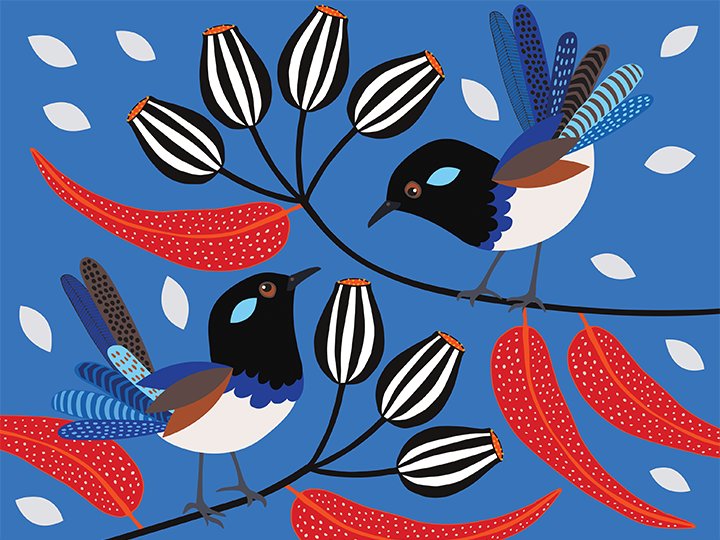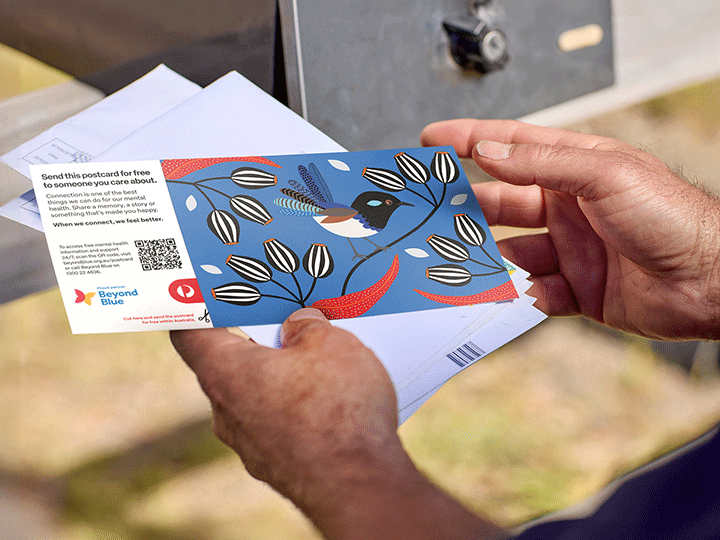Send a postcard to someone you care about
When we connect, we feel better
Talking to others about how we feel is important. In fact, connecting with others is one of the best things we can do for our mental health and can help us live longer, improve our physical health, and enhance our overall wellbeing.
Each year Australia Post and Beyond Blue are sending out 5 million postcards to rural and regional households across Australia, helping overcome loneliness through simple acts of connection.
You can also pick up a Connection Postcard at participating post offices and send it to someone to let them know you care.



Chat to a counsellor online

Support someone struggling with loneliness and mental health
On this page
How to write and send a free postcard from your local post office
Connection Postcards are postage paid for delivery anywhere in Australia. You don't need a stamp.
To get involved, simply:
- Write a message on the back.
- Add the recipient's address in the provided space.
- Cut or tear along the serrated edge and keep the mental health information in your wallet as a reminder to check in on your mental health.
- Drop the addressed postcard side into a red street posting box or to your local post office.


A little hello goes a long way...
- Feeling connected means that we belong in our communities and we care about, and are cared for by, the people around us.
- When we connect with someone, we can share our experiences and understand what others are going through as well.
- When we feel less alone, we feel stronger and more able to cope with life’s challenges.
Social connection and belonging play a key role in our mental health and wellbeing:
-
People who are connected are less likely than those who are lonely to have depression, social anxiety, and chronic disease.
-
People who are connected are more likely to sleep better, eat better and have better physical health.
-
People who are connected report better work productivity and enjoy work more compared with people who are lonely.
-

What we know about loneliness and mental health
You’re not alone if you’re feeling lonely
Even in our digitally connected world, people living in Australia are feeling isolated. Almost 1 in 3 Australians feel lonely, and 1 in 6 say they’re often or always feeling this way. It's common to feel shame and avoid discussing loneliness. But the more we talk openly about it, the better we'll all feel.
Help someone in distress get the support they need
Every two minutes, someone in Australia hits a low point and reaches out to Beyond Blue for mental health support.
Your donation will help us ensure every call, webchat and email are answered.











